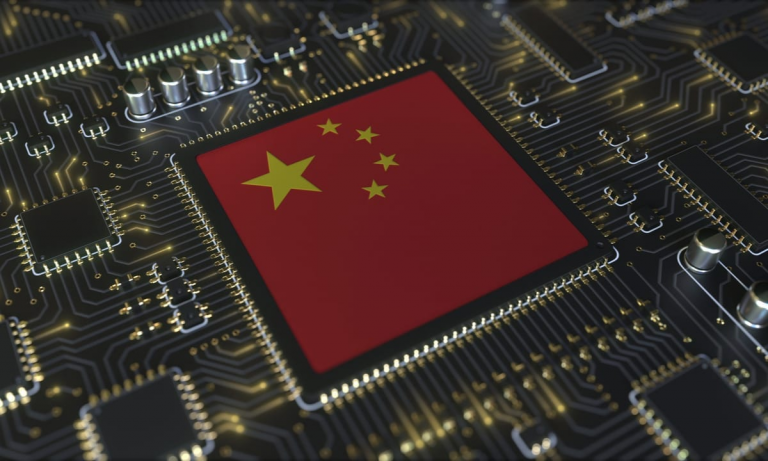
China has warned of possible legal consequences for individuals or companies that comply with new U.S. restrictions discouraging the use of Huawei’s artificial intelligence chips, marking a sharp escalation in the deepening technology rivalry between Washington and Beijing.
The Chinese Ministry of Commerce, in a strongly worded statement on Wednesday, denounced the U.S. measures as discriminatory and politically motivated, accusing Washington of abusing export control rules to suppress Chinese firms.
“The US abuses export controls to contain and suppress China, which violates international law and basic norms of international relations. This severely harms the legitimate rights and interests of Chinese enterprises and undermines China’s development interests,” it stated.
Register for Tekedia Mini-MBA edition 19 (Feb 9 – May 2, 2026).
Register for Tekedia AI in Business Masterclass.
Join Tekedia Capital Syndicate and co-invest in great global startups.
Register for Tekedia AI Lab.
These actions violate the principles of fair competition and international economic and trade rules, the ministry said, adding that any institution or individual that enforces such discriminatory restrictions may face corresponding legal liabilities under Chinese law.
The warning comes days after the U.S. Commerce Department issued guidance suggesting that companies using Huawei’s Ascend AI chips—particularly in cloud computing and data centers—could be in violation of U.S. export control regulations. While not an outright ban, the advisory puts additional pressure on firms to steer clear of Chinese semiconductors, intensifying the technological decoupling between the world’s two largest economies.
China passed a significant rule in 2021 called the Anti-Foreign Sanctions Law. Under this regulation, anyone imposing an unnecessary ban against China or Chinese firms will be subject to prosecution and have to pay compensation for losses incurred.
A Fragile Truce Unraveling
The move risks unraveling a tentative truce reached in late 2023 between the Biden administration and Beijing aimed at stabilizing trade relations after years of tit-for-tat tariffs and blacklisting of tech companies. But with President Donald Trump returning to the White House and reaffirming his “America First” doctrine, Washington has re-energized its campaign to stifle China’s access to cutting-edge technology.
Trump has repeatedly accused China of leveraging U.S. innovations for military and surveillance purposes. In his first term, he placed Huawei on the Commerce Department’s Entity List, effectively cutting it off from American suppliers. Now, with Huawei’s AI breakthroughs in view, his administration is expanding those measures.
Beijing Hits Back
China’s threat of legal action marks the first time it has explicitly warned of judicial consequences for following U.S. tech sanctions. While it remains unclear what form these liabilities could take, analysts say that it sends a clear message that China is no longer content with issuing diplomatic protests—it may now retaliate with domestic legal tools.
The Ministry of Commerce called on the United States to “respect the legitimate development rights of enterprises in all countries, including China,” and reiterated that technological progress should not be politicized or weaponized.
Huawei Sanction-Driven Innovation: The Good Side of U.S. Restrictions
Huawei’s recent breakthroughs illustrate how U.S. pressure has inadvertently spurred Chinese innovation. Once heavily reliant on American technology, the Shenzhen-based giant has spent the past four years reengineering its supply chains.
By early 2024, Huawei announced it had successfully replaced over 13,000 parts previously sourced from U.S. companies and redesigned 4,000 circuit boards. More recently, the company achieved a milestone in producing its Ascend 910C AI chips, reportedly doubling its production yield from 20% to 40%—a major leap in semiconductor self-sufficiency.
The chips, which power Huawei’s AI cloud services and data centers, have increasingly become a symbol of China’s determination to compete in the global race for artificial intelligence supremacy. That progress has alarmed U.S. policymakers, who view advanced chips as strategic assets vital to national security.
Tech Cold War Deepens
China’s retaliatory tone signals that the tech cold war between the two powers is entering a more aggressive phase. Legal threats could deter multinational corporations from complying with U.S. directives, especially those operating in or selling to China’s massive market.
However, it also puts global businesses in a precarious position. “Companies are being squeezed from both sides—told by the U.S. not to use Chinese tech and warned by China not to comply with U.S. rules,” said Paul Triolo, a China tech expert at Albright Stonebridge Group.
The Biden administration had attempted to keep the rivalry contained within strategic parameters, but Trump’s return has revived a confrontational posture that risks fracturing global supply chains. With Huawei proving resilient under sanctions, and China now openly threatening legal retaliation, the struggle over AI chips is fast becoming a defining front in the broader geopolitical contest for technological dominance.



